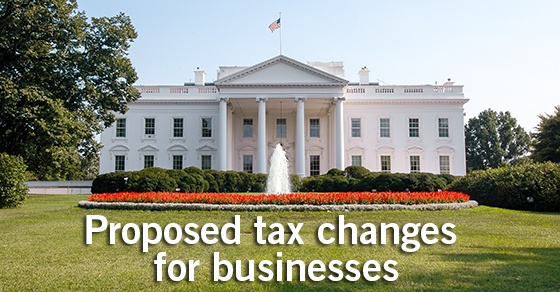Category: small business
Business owners: An exit strategy should be part of your tax planning

Tax planning is a juggling act for business owners. You have to keep your eye on your company’s income and expenses and applicable tax breaks (especially if you own a pass-through entity). But you also must look out for your own financial future.
Make sure the IRS won’t consider your business to be a “hobby”
 If you run a business “on the side” and derive most of your income from another source (whether from another business you own, employment or investments), you may face a peculiar risk: Under certain circumstances, this on-the-side business might not be a business at all in the eyes of the IRS. It may be a hobby.
If you run a business “on the side” and derive most of your income from another source (whether from another business you own, employment or investments), you may face a peculiar risk: Under certain circumstances, this on-the-side business might not be a business at all in the eyes of the IRS. It may be a hobby.
Tangible property safe harbors help maximize deductions
 If last year your business made repairs to tangible property, such as buildings, machinery, equipment or vehicles, you may be eligible for a valuable deduction on your 2016 income tax return. But you must make sure they were truly “repairs,” and not actually “improvements.”
If last year your business made repairs to tangible property, such as buildings, machinery, equipment or vehicles, you may be eligible for a valuable deduction on your 2016 income tax return. But you must make sure they were truly “repairs,” and not actually “improvements.”
The tax-smart way to replace a business vehicle
 Although a vehicle’s value typically drops fairly rapidly, the tax rules limit the amount of annual depreciation that can be claimed on most cars and light trucks. Thus, when it’s time to replace a vehicle used in business, it’s not unusual for its tax basis to be higher than its value. This can be costly tax-wise, depending on how you dispose of the vehicle:
Although a vehicle’s value typically drops fairly rapidly, the tax rules limit the amount of annual depreciation that can be claimed on most cars and light trucks. Thus, when it’s time to replace a vehicle used in business, it’s not unusual for its tax basis to be higher than its value. This can be costly tax-wise, depending on how you dispose of the vehicle:
Can you pay bonuses in 2017 but deduct them this year?
 You may be aware of the rule that allows businesses to deduct bonuses employees have earned during a tax year if the bonuses are paid within 2½ months after the end of that year (by March 15 for a calendar-year company). But this favorable tax treatment isn’t always available.
You may be aware of the rule that allows businesses to deduct bonuses employees have earned during a tax year if the bonuses are paid within 2½ months after the end of that year (by March 15 for a calendar-year company). But this favorable tax treatment isn’t always available.
There’s still time to set up a retirement plan for 2016
 Saving for retirement can be tough if you’re putting most of your money and time into operating a small business. However, many retirement plans aren’t difficult to set up and it’s important to start saving so you can enjoy a comfortable future.
Saving for retirement can be tough if you’re putting most of your money and time into operating a small business. However, many retirement plans aren’t difficult to set up and it’s important to start saving so you can enjoy a comfortable future.
A quick look at the President-elect’s tax plan for businesses
 The election of Donald Trump as President of the United States could result in major tax law changes in 2017. Proposed changes spelled out in Trump’s tax reform plan released earlier this year that would affect businesses include:
The election of Donald Trump as President of the United States could result in major tax law changes in 2017. Proposed changes spelled out in Trump’s tax reform plan released earlier this year that would affect businesses include:
Are you timing business income and expenses to your tax advantage?
 Typically, it’s better to defer tax. One way is through controlling when your business recognizes income and incurs deductible expenses. Here are two timing strategies that can help businesses do this:
Typically, it’s better to defer tax. One way is through controlling when your business recognizes income and incurs deductible expenses. Here are two timing strategies that can help businesses do this:
Help retain employees with tax-free fringe benefits
 One way your business can find and keep valuable employees is to offer an attractive compensation package. Fringe benefits are an important incentive — especially those that are tax-free. Here’s a rundown of some common perks and their tax implications.
One way your business can find and keep valuable employees is to offer an attractive compensation package. Fringe benefits are an important incentive — especially those that are tax-free. Here’s a rundown of some common perks and their tax implications.







